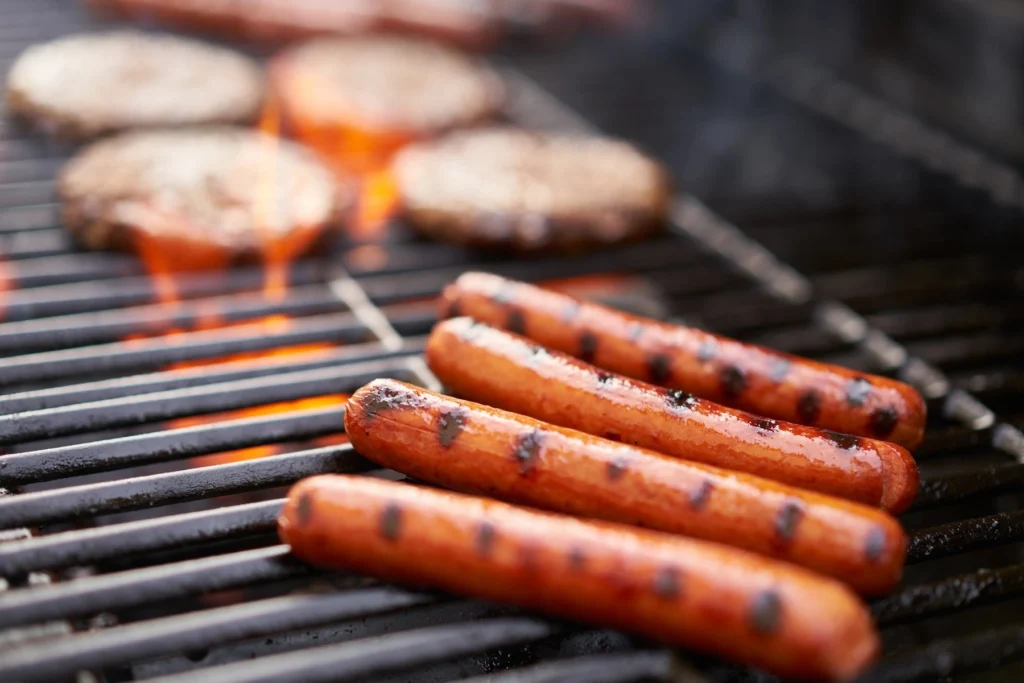The 4th of July is a time for celebration, BBQ Cookouts, patriotism, Freedom, and the joyous gathering of friends and family. Fireworks light up the night sky, barbecues sizzle with mouthwatering aromas, and laughter fills the air. However, for those on a journey to sobriety, this holiday can also present one of the most difficult challenges and temptations. The key to navigating the the holiday while staying sober is preparation, awareness, and support. This article aims to provide insights, strategies, and encouragement for individuals looking to stay sober on Independence Day and for their loved ones to recognize potential red flags.

The 4th of July and Its Challenges
The 4th of July is synonymous with parties and social gatherings, which often involve alcohol. For someone in recovery, these situations can be very challenging and tempting. The pressure to fit in, the desire to celebrate, and the presence of alcohol can create a uncomfortable environment. Recognizing these challenges is the first step toward a successful, sober holiday.
Strategies for Staying Sober
1. Plan Ahead
Having a plan is the first thing you need to do. Knowing where you’re going, who will be there, and what the environment will be like. If you’re attending a party where alcohol will be present, consider bringing your own non-alcoholic beverages. If you are looking for a non basic drink consider something like a Mocktail, check out this article from Bonappetit for a list of the best non alcoholic drinks. This way, you’ll have something to drink and won’t feel left out.
2. Communicate Your Needs
Don’t be afraid to let your friends and family know about your sobriety. Most people will be supportive and understanding if they are aware of your situation. This can also help reduce the pressure to drink and make it easier to decline offers of alcohol. Most of the time you will find out that no body really cares that you’re not drinking, its usually all in your head!
3. Bring a Sober Buddy
Having a stong sober support network is vital for anyone in recovery and especially during events that can be triggering. Attending events with someone who supports your sobriety can make a world of difference. A sober buddy can provide moral support, help you stay accountable, and offer companionship in potentially triggering situations.
4. Stay Busy
Engage in activities that don’t revolve around drinking. Play games like cornhole, hillbilly horseshoes, help with the cooking (I always volunteer to be the glizzy cook), or start conversations. Staying busy can distract you from the temptation to drink and help you enjoy the celebration in a healthy way.
5. Have an Exit Strategy
If the environment becomes too overwhelming, it’s okay to leave. Have a plan in place for how you will exit and where you will go. Sometimes removing yourself from a triggering situation is the best way to maintain your sobriety. This is one of the best tips my sponsor ever gave to me, he always suggested that I drove myself so I could always leave when or if I got into a tempting or uncomfortable situation
Recognizing Red Flags for Family Members
Family members play a crucial role in supporting their loved ones in recovery. Being aware of red flags can help you provide timely support and intervention. While you all are with friends and family during Independence Day keep an eye out for red flags in your loved ones. Remember to NEVER approach someone who you think is suffering from substance abuse from a judgmental standpoint.
1. Changes in Behavior
Noticeable changes in behavior, such as irritability, secrecy, or withdrawal from social interactions, can be signs of a relapse or struggle. Pay attention to these changes and address them with care and understanding.
2. Physical Signs
Look for physical signs such as bloodshot eyes, unexplained injuries, wearing long sleeves during hot weather, or neglect of personal hygiene. These can be indicators that your loved one might be struggling with their sobriety. If you see any of these signs, read this article on how to approach your loved one.
3. Financial Irregularities
Unexplained spending, borrowing money, or missing valuables can be signs of substance use issues. If you notice these patterns, it may be time to have an open and honest conversation.
4. Isolation
If your loved one starts avoiding family gatherings or social events, this could be a red flag. Isolation is a common behavior in those who are struggling with addiction or are on the verge of relapse. Most addicts will avoid people who might interrupt their substance use or try to intervene when they are not ready to stop using yet.
5. Emotional Instability
Mood swings, depression, and anxiety are common among those battling addiction. If you notice these emotional changes, offer your support and encourage them to seek professional help if needed. We at Asheville Recovery Center can help you navigate the best way to approach these concerns. Feel free to reach out anytime to of our Admissions Coordinators either by filling out a contact form or calling us at (828) 518-6996.

Encouraging Sobriety
1. Create a Sober Environment
If you’re hosting a 4th of July celebration, consider creating a sober-friendly environment. Offer a variety of non-alcoholic beverages White Claw now has a 0.00% Non Alcoholic Seltzer and engage in activities that don’t revolve around alcohol.
2. Show Support
Be someone that offers support and encouragement to people who are trying to overcome their addiction. Let your loved ones know that you are proud of their progress and are there to help them through any challenges that they might have.
3. Educate Yourself
Understanding addiction and recovery can help you provide better support. Educate yourself about the challenges your loved one faces and how you can best assist them. Al-Anon or Nar-Anon are great resources for people with loved ones who are overcoming addiction or alcoholism.
4. Encourage Professional Help
If you notice signs of struggle, encourage your loved one to seek professional help. Whether it’s counseling, attending support groups, or checking into a recovery center, professional guidance can be invaluable.
Embracing a Sober Lifestyle
Staying sober on the 4th of July is about more than just avoiding alcohol; it’s about embracing a healthier, more fulfilling lifestyle. Here are some tips to help you or your loved ones embrace sobriety:
1. Find New Hobbies
Discover activities and hobbies that don’t involve alcohol. Whether it’s hiking, painting, 3D Printing, drones, exercise, or volunteering, finding new interests can help fill the void left by alcohol.
2. Build a Support Network
Surround yourself with supportive friends and family who understand your journey. Join support groups where you can share your experiences and learn from others who are also in recovery. Alcoholics Anonymous, Narcotics Anonymous, SMART Recovery, and Recovery Dharma are among the most popular support groups out there.
3. Practice Self-Care
Taking care of your physical and mental health is crucial in recovery. Exercise regularly, eat healthy, and practice mindfulness or meditation to reduce stress and maintain a positive outlook.
4. Set Goals
Set achievable goals for yourself. Whether it’s staying sober for a certain number of days (sometimes hours at a time) or working towards a personal milestone, having goals can give you a sense of purpose and accomplishment.
5. Celebrate Your Achievements
Acknowledge and celebrate your progress, no matter how small. Every day of sobriety is a victory, and recognizing your achievements can motivate you to keep going.

Conclusion
The 4th of July is a celebration of freedom and independence, and for those on the journey to sobriety, it can also be a celebration of personal freedom from addiction. By planning ahead, staying vigilant, and seeking support, you can navigate the challenges of the holiday and enjoy a sober celebration. Family members can play a vital role in this process by recognizing red flags and offering support and encouragement. Remember, sobriety is a journey, and every step taken is a step towards a healthier, happier life. Embrace the joy of independence and freedom this 4th of July, and celebrate the remarkable progress you’ve made.
By focusing on these tips and maintaining a positive, proactive approach, you can enjoy a fulfilling and sober 4th of July. Remember, you are not alone in this journey, and with the right support and mindset, you can embrace the festivities with confidence and joy.






